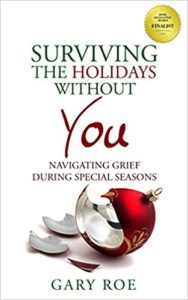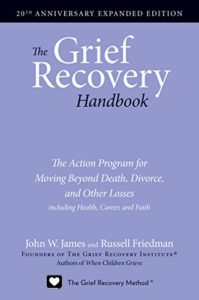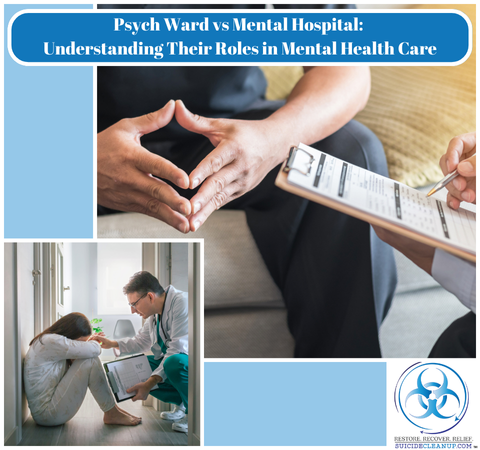
Can Seeing a Dead Body Cause PTSD?
November 30, 2021
How to Cope With Stressful Life Events
December 20, 2021If you’re apart of the 57% Americans that are grieving, the holidays are probably especially tricky for you right now. And if you’re supporting a loved one who is suffering loss, you’ve already experienced the awkwardness of celebrating knowing your friend or family member is in pain. The important thing to remember is that the season means different things to each of us, and for those of us who are grieving during it, the pain can be intensely focused. That’s why it’s important to practice self-care, and to find ways to turn a season of sharing and introspection into a fruitful period of healing.
Here are ways for those experiencing grief to navigate these challenging annual milestones.

“It’s coming on Christmas
They’re cutting down trees
They’re putting up reindeer
And singing songs of joy and peace
Oh I wish I had a river I could skate away on.”
– Joni Mitchell
Seek Out Grief Support During the Holiday Season
Whether you manage to carry on seasonal holiday traditions as best as you can, or you decide you aren’t up to facing seasonal celebrations, you deserve to keep up with self-care and healthy coping mechanisms. Grief support through therapy, social connections, or group sessions helps us express our feelings, and therefore maintain better mental health.
Reach out to your personal support network
Your closest allies want to know how to support you through this time, but you have to meet them halfway. Stay in touch with them, and as always, be specific when asking them for help. For example,
- “I need a bit of a distraction; can we go grab some coffee, or can I join you to go shopping?”
- “Would it be okay if I joined you for Christmas dinner?”
- “I could use someone to talk to, if you’ve got a few minutes.”
Make an extra appointment with your grief counselor
If your therapist has openings on their calendar, ask to set up appointments leading up to, during, and immediately after the festivities if at all possible. They will help equip you with the specific tools you need to get through this time, and perhaps to use them to further your healing.
Join an organized support group
If you haven’t already participated in a grief support group, or if your grief counselor is booked up, find a support group near you. Support groups offer fellowship and the opportunity to share the feelings of grief unique to the season without worrying about “bringing people down”. Other benefits of trusted peer support groups may surprise you:
- You will learn about other people’s healthy coping skills.
- You might find alternate plans for the holidays if you are alone.
- You can contribute to other people’s healing, which will help your own sense of wellbeing.
You can search for grief support groups near you through GriefShare.org, or through the National Alliance on Mental Illness (NAMI). The latter is particularly helpful for those who lost loved ones to suicide.
Take comfort in a book
For many of us, getting lost in a story can help distract us from the pain of loss, but self-care books can also help us constructively live with and process our grief. Here are a few non-fiction books that have helped many with their grief strategies during these sensitive times:
If you’re supporting someone in their grief, don’t wait until it’s time to open presents to give them one of these volumes. Give it to them as an early gift.
Include the Deceased in Your Holiday Celebrations

“It’s hard when someone says, ‘It’s great we’re all together for Christmas’. Yet the reality is, when a loved one dies, we’re never all here.” – David Kessler
Invite everyone to sing your loved one’s favorite song
If the deceased had a favorite song, sing it together! There’s an emotional catharsis to singing, and singing can help us manage grief and anxiety.
Have a round of toasts in their honor
What better way to celebrate a person’s life than by raising a glass and taking turns sharing a story around the dinner table? The choice of beverage isn’t important. It’s about the opportunity to inclusively bond over memories. And you’ll likely learn something new about your loved one in the process.
Sayings for Loved Ones in Heaven
First Christmas without your loved one and don’t know what to say during your toast? Completely normal. We recommend focusing your toast on happy memories, or acknowledging that their spirit is still with you and the family in a new sense. Use a personal story, or talk about a memory you hold dear. Some ideas to add to the beginning or end of your toast:
- “We miss you this Christmas, and know you are watching down on us from heaven.”
- “We feel your spirit everyday, but on this day, we feel it even greater.”
- “Let’s make today a day to remember family with and without us. Amen.”
Everyone grieves, and everyone grieves differently. But we should be even more sensitive towards grieving mothers during Christmas. You can send Christmas wishes such as “thinking of you and hope you know I’m here to listen if you’d ever like to talk through this difficult season” as a message or in a card.
Decorate with an understated but meaningful memorial
A simple gesture like lighting a candle or hanging a memorial ornament can help you express your feelings. This might be particularly useful if you feel guilt for celebrating the holiday after their loss.
Some people make small altars to help them through their grief. These tokens and spaces dedicated to your relationship with the deceased give you a place and permission to experience your thoughts with purpose—particularly at a time when we feel pressure to be cheerful and bright. Others who see your memorials may benefit the same way you do, and feel less inhibited about sharing their own feelings.
Plan a special day during the season for friends and family

“The holiest of holidays are those kept by ourselves in silence and apart: The secret anniversaries of the heart.” – Henry Wadsworth Longfellow
The people you spend time with might not be the same social circle you shared with the one you lost. That can add to the isolation when you’re gathered with your own family, and it’s possible your friends feel the same way.
Choose the type of meeting place the deceased would have enjoyed and gather to support one another, remembering that it’s okay to celebrate the friendships among the living as well as the memories of the deceased.
But what if the deceased was a core member of your family? There’s no reason not to plan a special time to memorialize your loved one, whether it be on the actual holiday or perhaps on a day shortly before.
Don’t Let Yourself Feel Left Behind
More important than anything else is the permission to grant yourself to be authentic about your feelings—with yourself, and with your loved ones. The impending holidays may seem emotionally insurmountable, but if you allow yourself to seek support and to look after your wellbeing, they can be a surprising opportunity for healing.
We understand what our clients are going through, and we’re here to support our clients with empathetic post-trauma restoration services. If you’re going through this right now, check out the resources on our blogs and share our article to reach friends and family that are grieving a loss as well.
During times of grief, suicide remediation cleaning can help families regain a sense of normalcy after tragic events.








